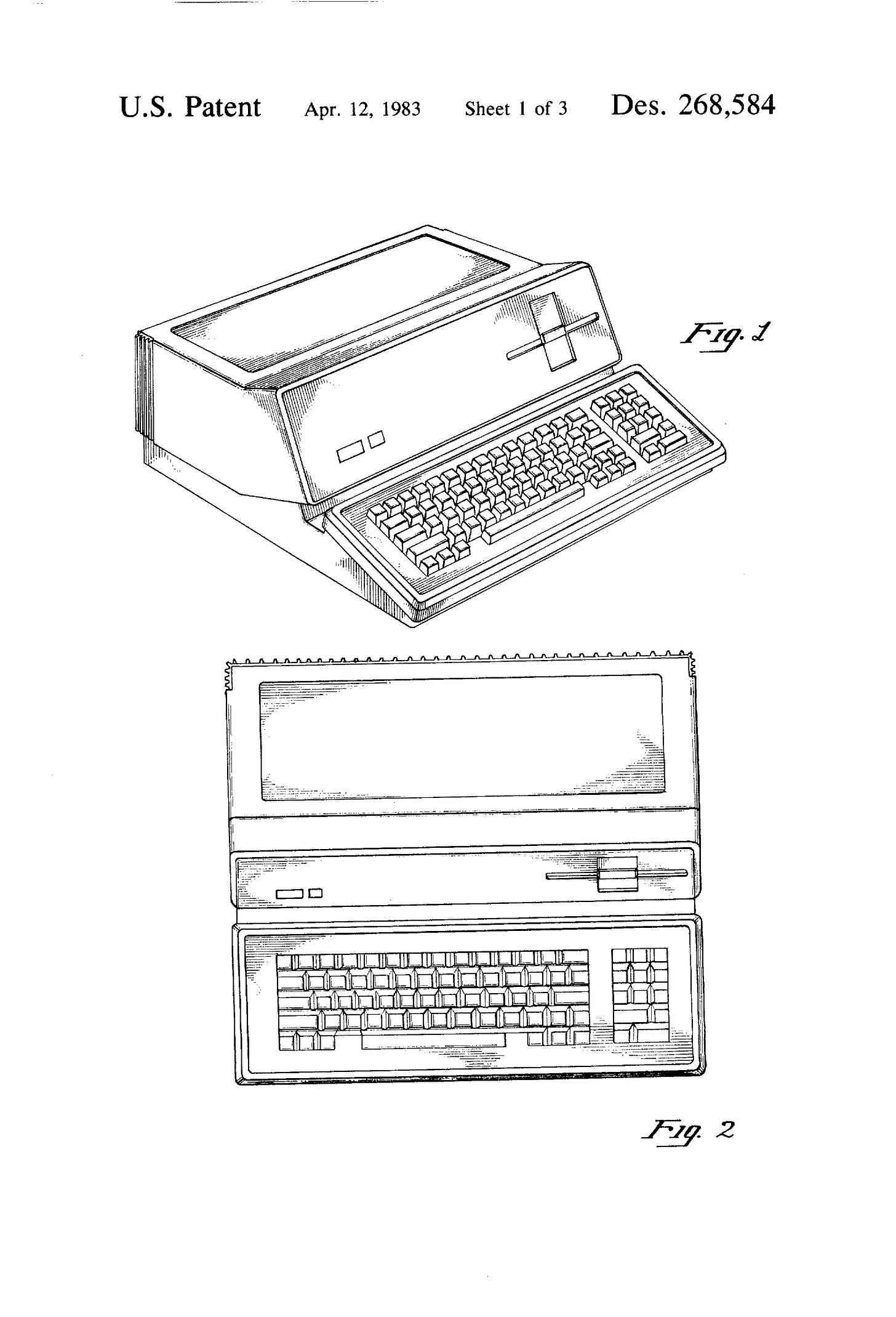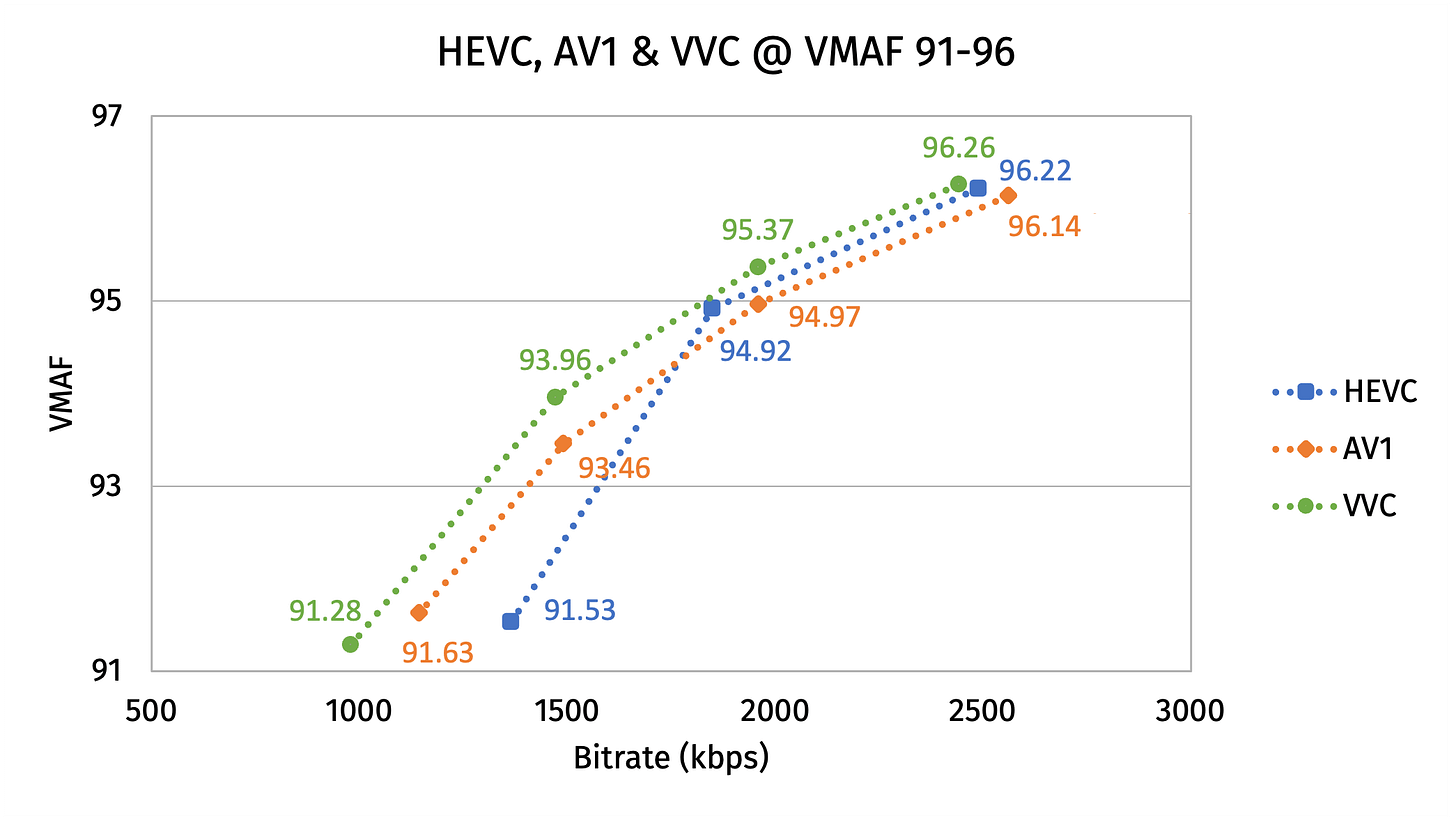Tech’s silent boycott of patenting
A new sheriff is in town, and he’s greedy as all get out.
Sometime in the flux when the industry began its transition from the Advanced Video Coding (“AVC” or “H.264”) to High Efficiency Video Coding (“HEVC” or “H.265”), the consolidated tech industry formed a cohesive stance regarding patents, and the stance was one of overwhelming disdain. And in the time between the hobbled proliferation of HEVC and its successor, Versatile Video Coding (“VVC” or “H.266”), their strategy for snuffing out the scourge of patenting was solidified. They decided to boycott.
The tech industry wasn’t always like this. In fact, one of their most infamous daddies (so called due to the love-hate relationship they all had when he was alive and the fictionalised romance they espouse now that he’s dead), the late great Abdul Lateef Jandali (PBUH) Steven Paul Jobs (RIP), famously and shamelessly loved patents. Here’s the first patent he ever filed:
This was not a fluke or one-off thing, but rather one of the many things Steve did that demonstrated his courage and conviction: he was making a point about the value of patents. Indeed, the MIT Technology Review wrote—not coincidentally around the same time the newly mobbed-up industry was making its mind up about patents—that even in death, Steve lives on at the Patent Office. So often historical research like this shows us we inhabit a small world, or rather a world that sometimes seems shrunk down to the comforts of the minds that agitate to control it. Unlike those guys, Steve thought that patents were the lifeblood of tech – why would anyone bother inventing anything if they have no means to make any money off of it? Touché.
For whatever rhetoric you may or may not have been told in the last ten odd years that the industry has been captured like this, the results are now bearing that out: a huge asymmetrical information warfare campaign has been silently waged in the margins of the mainstream Web to delete, distract and disinform about the existence and viability of the modern codecs of lofty MPEG heritage. One of the two patent pools for VVC doesn’t even have a Wikipedia article, redlinking from the other patent pool’s page. Wikipedia even lists all of the ‘notable companies’ not participating in either patent pool. Like all the mentions of Epstein on Bill Clinton’s Wikipedia page, this is one of those things that got the fix put in by the corrupt elements embedded into the WMF I guess, because it’s fucking insane that an international patents pool that counts Toshiba, Alibaba, Panasonic and several international universities among its licensees doesn’t have a Wikipedia article at all. Like, this isn’t 2006. We can figure what probably happened here.
While I can’t say for sure why the industry has such a negative opinion about patents, I can tell you for sure why they don’t—ergo, how they lie about it through misrepresentations—and I can tell you a pretty simple theory I have in lieu of hard facts from the horse’s mouth on why patents are non grata to them now.
One of the biggest misrepresentations around patents in the context of computing that really took off in the course of their capture of open source software culture is the conflation of software patents with hardware patents. Historically, many informaticians and digital rights groups have opposed the enforceability of software patents, usually citing a theory that code is better contextualised as information a la the First Amendment and does not meet the mechanical threshold to be considered an invention. While the latter part of that is debatable, it’s still pretty absurd overall considering this argument is never used to bring copyright into question – and I guess it wouldn’t, since that liberty has already been captured from the public with the technique of software-as-a-service. Most law exists to furnish the delusions and grandiosity of those with power, and these are textbook examples of that.
We just don’t hear earnest arguments about this part of things, because if we took these false premises on their faces as true and supposed that Congress or the Supreme Court should outlaw software patents, or that pools should offer some kind of goodwill or promise about them, then the rationale for their patent holding and royalty collection on hardware stands strong, and that’s just about the worst outcome imaginable for the industry.
This might sound wild, but the sole motivation for this concerted corporate hatred of patents revolves entirely around money. You see, patent royalties are in a kind of uncanny valley: they’re expensive enough to be more than an afterthought on corporate balance sheets due to their scaling factor with respect to sales, but also cheap enough that the corporation cannot comfortably pass on the volatility they experience in taking on this cost. Since we no longer operate in a world where citizens have any meaningful market participation power, corporations have moved away from simple models of profit and enterprising and onto deeper methods of value extraction – this means that it’s awkward for them to have to pass on a mere 30 cents to the customer. More exactly, they cannot trivially pass on the burden of dealing with this in a way that enables them to make additional money. 30 cents is nothing to someone who buys an iPhone—a rounding error for the sticker price really—but it’s a big bill at the end of the year for someone who makes all the iPhones ever. To them, it feels kind of like a tax, and we all know how corporations feel about paying taxes. And while even so most other corporations would just accept this as one of the so-called costs of doing business and get on with it, that’s not acceptable to the tech mafia, who are all coked out on novel hallucinogenics and practise their beliefs to a dehumanising fault. Accepting patents as a fact of life is anathema to their core sense of self—a sense of self that heavily depends on maintaining the image of their own primacy and inviolability—it’s an act of humiliation to have to pony up loads of cash to some other guy you don’t know and can’t easily get one over on. 30 cents is too small an amount to make it clear that the customer, not you, is the bitch in this transaction, because a device is costing hundreds or thousands of dollars. These men with widespread fatherly issues thus conclude that the only option is to cut it out entirely and rationalise the affair as some public service they’re doing for us all.
In conclusion, patents have been made victim to the onward death march our modern zaibatsus have embarked upon to maximise shareholder value, with special gravity given to the often petty and irrational windowpane views shareholders and executives take when looking at balance sheets. If all of this sounds too abstract or unbelievable, just look at the results: H.266 is functionally dead, despite the fact that it beats AV1 with one hand behind its back.
Look at that and then look at the discourse about it if you care. Tabloids and comment sections have all been heralding its doom. Reddit diehards all say it’s Joever, and often like to cite the inevitable win to be taken by AV2, a codec that does not currently exist, in face of the reality that VVC is objectively superior to AV1. They even finessed the FFMPEG maintainers somehow into delaying the VVC codec’s merge into mainline without explanation for years. Every regurgitated talking point online said AV1 was the future and VVC was dead on arrival, except VVC beats it outright and somehow the phoney mainstream Internet acts like that never happened. Even despite the Reddit thread being years old, there’s still one diehard in there spouting disinformation about it as recently as 3 days ago. Every Redditor spouts the line that ‘the licencing is garbage’ but don’t ever seem to understand why or have any opinion on the facts – almost like the confusion is being exploited and smeared to power a false consensus that keeps these patent-ridden innovations out of the picture entirely. This is some pretty hardcore unreality for a video codec, but I guess it’s all in a day’s work for everyone’s favourite mafia.
I hope you’re enjoying your worse video quality that they kept all the cost savings for. They could have made some great ASICs to encode and decode the best video algorithms known to man, and made your devices cost a tiny bit more for the trouble, but they didn’t out of principle. They’re showing the world who’s boss here, and that’s what actually matters right?
Sorry not sorry to all those normal people out there who recognise that the new codec is better for archiving and want to save space… I guess you’ll just have to get richer somehow or fuck off because they don’t care about you… such great innovation and disruption guys… I think I might buy a 5090 now and try to join you guys on your Heaven’s Gate spaceship to Mars using AI…





